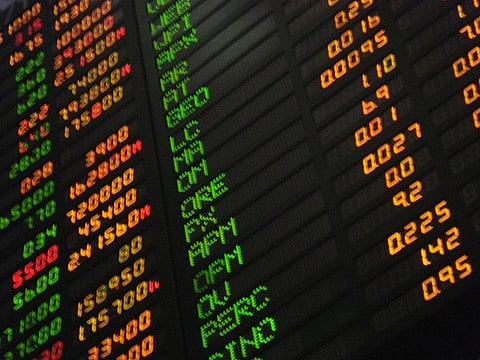

Asian stock markets took a nosedive on Monday, fueled by worries about a global economic slowdown and uncertainty about US trade policies. Japan’s Nikkei 225 index plummeted by 6%, marking its biggest drop seen in years. South Korea’s KOSPI and China’s CSI300 fell by 5% and 4.4%, respectively. Investors were on edge due to the escalating trade tensions after US President Donald Trump ruled out the chance of an immediate deal with China, saying that addressing the US trade deficit is a priority. In response, Beijing talked at possible retaliatory actions, showing that an agreement is far from being reached.
The sell off reached US and European markets, with S&P 500 and Nasdaq futures falling more than 3% and 4%, respectively. European indexes, such as the EUROSTOXX 50 and Germany’s DAX, also saw sharp declines. Commodities took a hit as well, with Brent crude oil dropping to $64.23 a barrel. Economists, including Bruce Kasman from JPMorgan, have said that ongoing US tariffs could lead to a global recession, estimating a 60% chance of that outcome. Kasman also predicts that the US Federal Reserve may start cutting interest rates as soon as June to address the slowdown.
Investors are going to safer assets, which has pushed down the 10 year US Treasury yields to 3.916%. Meanwhile, the dollar has weakened against both the yen and the Swiss franc, and the Australian dollar, which is often seen as an indicator for risk appetite has also taken a further hit. Even though Fed Chair Jerome Powell previously said that there was no rush for rate cuts, the markets are now bracing for as many as five reductions in 2025. Economists have said that Trump’s support for tariffs has squashed hopes for a quick policy change, with one expert saying that, “The only circuit breaker is President Trump’s iPhone.”
The inflation data coming out soon in the US is expected to show a 0.3% increase for March, and this could complicate things for the Fed. Analysts from Goldman Sachs have said that tariffs might lead companies to either raise their prices or accept lower profits, which could hurt earnings forecasts. Also, gold, which is usually considered a safe haven, has dipped as investors are selling assets to cover losses, which could spark a cycle of further selling.